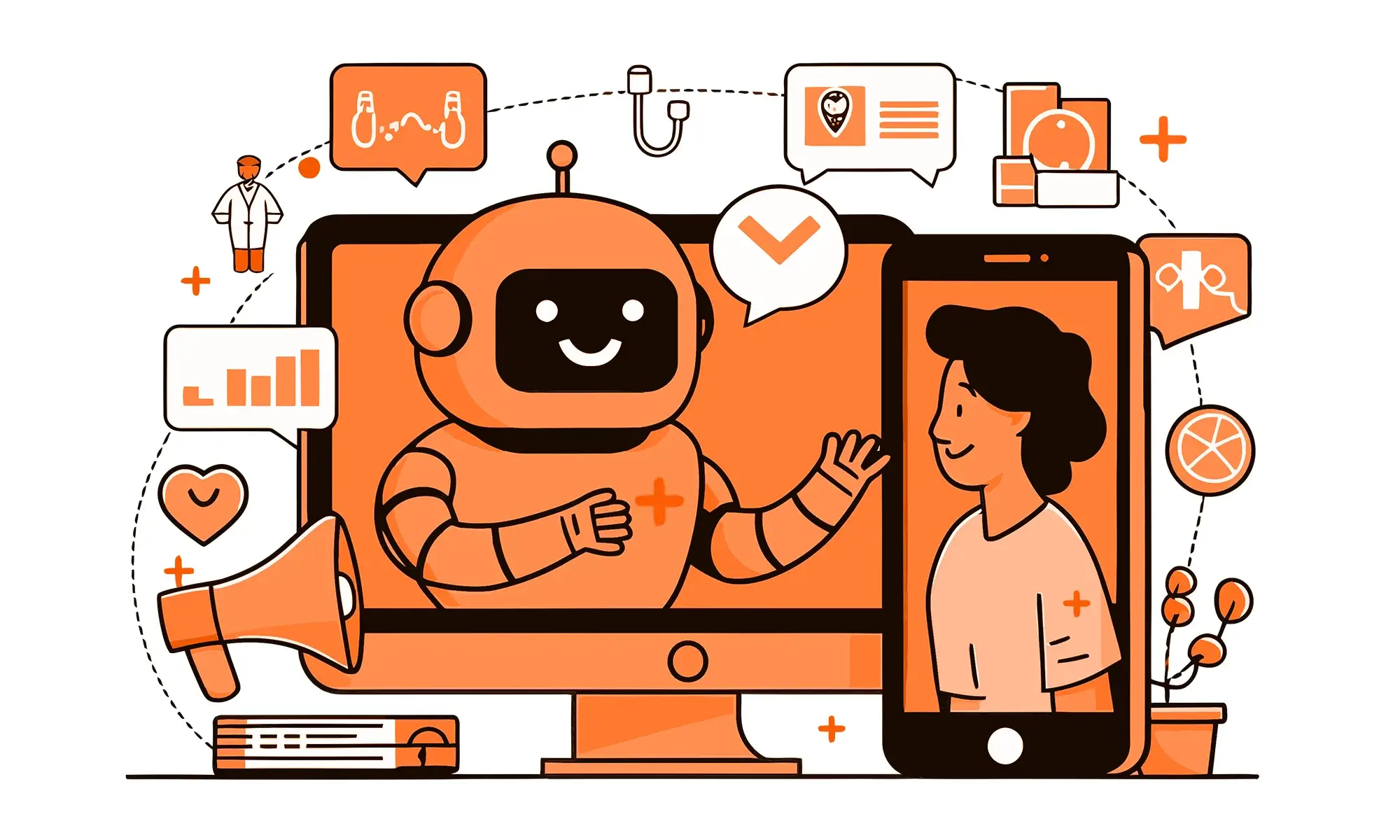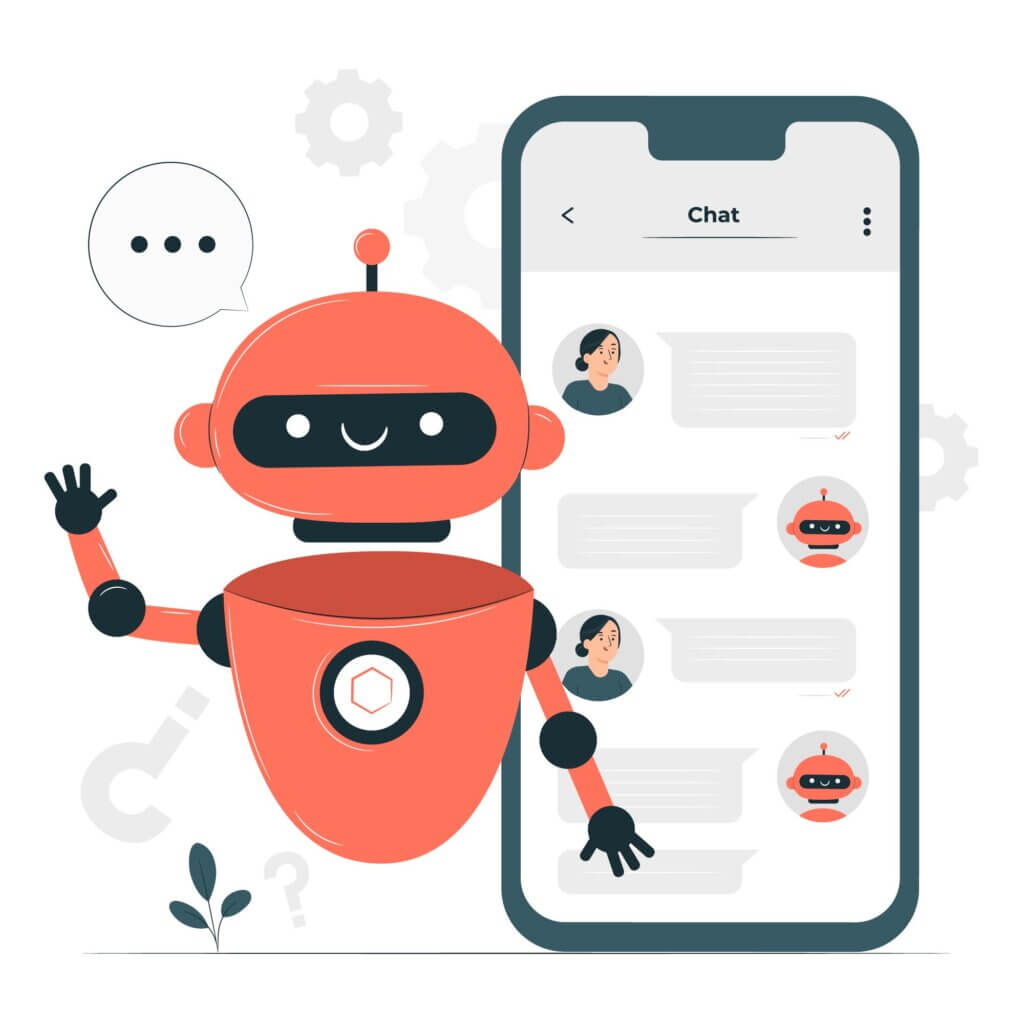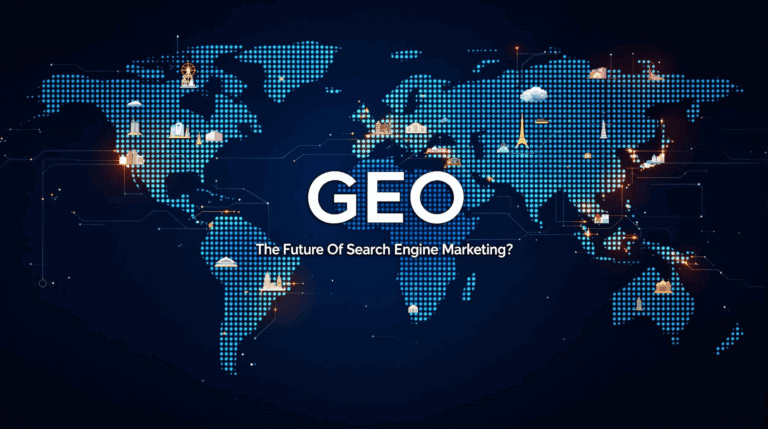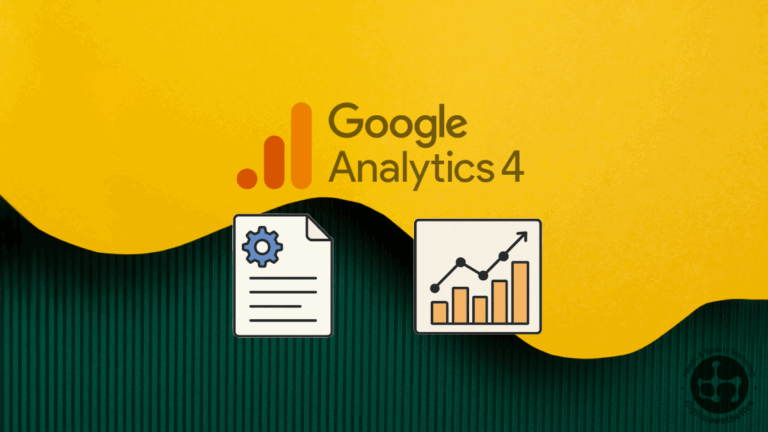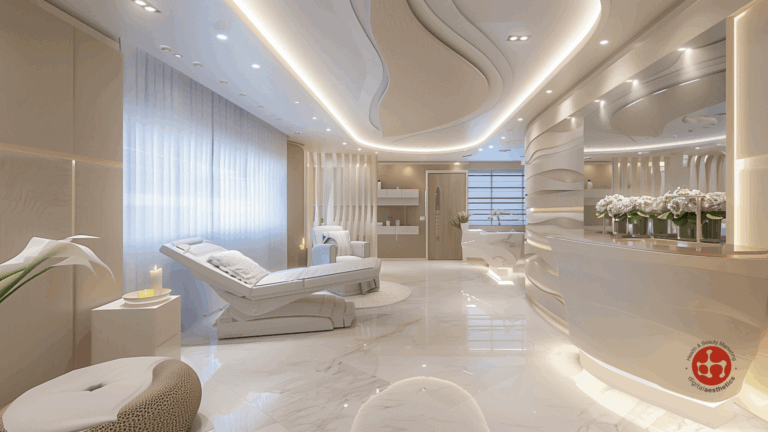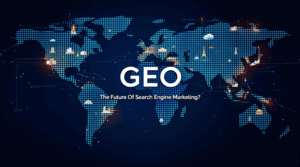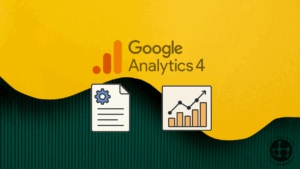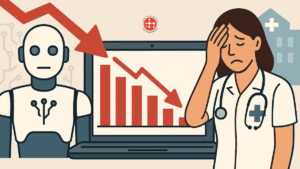In the dynamic world of technology, every digital interaction is a step towards revolutionising industries. The healthcare sector, once anchored in traditional methods like direct interactions and paper brochures, is now experiencing a huge transformative wave with the advent of AI chatbots. Currently, a significant 22% of organisations with digital footprints are employing conversational AI or virtual assistants! This is clearly signalling a major shift in healthcare engagement.
From Tradition to Digital Transformation
The journey from traditional to digital healthcare marketing reflects a significant shift. In the past, healthcare marketing relied heavily on printed materials, face-to-face interactions, and word-of-mouth referrals. These methods, though effective in their time, had distinct limitations. For instance, patients seeking information after hours were met with impersonal answering machines and the promise of a return call the next day. This delay in communication often led to frustration and anxiety, especially in urgent situations.
Moreover, the traditional system could not handle a high volume of queries efficiently. Patients making phone calls for general inquiries often found themselves navigating through a tedious maze of automated responses and being put on long holds. This not only tested their patience but also reflected a disconnect between patient expectations and service delivery. The digital age brought with it an expectation for immediacy and accessibility, something the healthcare industry struggled to meet until the advent of advanced technology.
Enter the AI Chatbot
The introduction of AI chatbots marked a revolutionary moment in healthcare. Picture a late-night scenario where a patient, perhaps dealing with a new health concern or needing immediate advice on medication, reaches out for help. In the pre-chatbot era, this would typically involve a stressful wait until the next morning or a rush to the emergency room for something that might not be an emergency. But now, AI chatbots have truly changed the narrative.
These chatbots, available 24/7, provide instant responses, guiding patients through their queries with a level of responsiveness and accuracy that rivals human interaction. For example, a chatbot can assess your symptoms, offer preliminary advice, or direct you to the appropriate care, all in real-time. This innovation isn’t just about convenience; it’s about offering a lifeline, an immediate connection to healthcare, anytime and anywhere. AI chatbots represent a perfect blend of technology and healthcare. They’re programmed with vast amounts of medical knowledge and are constantly learning from each interaction, becoming more adept at handling complex inquiries. This not only enhances patient engagement but also significantly reduces the response time, making healthcare more accessible and efficient.
Patient-Centric Tech: The Role of Digital Aesthetics
Incorporating AI chatbots into healthcare goes beyond the mere application of advanced technology; it’s about reshaping the healthcare experience around the target audience, your patients. At Digital Aesthetics, pioneers in digital marketing, we understand this better than most. With over 16 years of experience, we have mastered the art of integrating technology with patient-centred strategies.
Our approach focuses on understanding the unique needs and preferences of patients, thereby creating personalised experiences. For instance, our chatbots are designed not just to answer queries but to provide a comforting and reassuring presence, akin to a human caregiver. This level of personalisation ensures that patients feel heard, understood, and cared for, which is essential in healthcare.
Digital Aesthetics also recognises the importance of evolving with patient expectations, as we continuously adapt strategies and technologies to meet the ever-changing demands of the healthcare landscape. By doing so, we ensure that technology not only supports healthcare providers but also enhances the overall patient experience, making it more responsive, empathetic, and effective.
The Chatbot Ecosystem: A New Frontier in Healthcare
The chatbot ecosystem in healthcare represents a significant leap forward in how care is delivered and how patients interact with health services. The statistic from Hootsuite highlights a crucial point: 89% satisfaction among users of AI chatbots isn’t just impressive, it’s transformative. These chatbots are redefining customer service in healthcare, moving beyond the traditional role of answering queries to providing a personalised healthcare journey.
Chatbots are now crucial in understanding patient needs and preferences. By analysing individual interactions, they can identify trends and patterns, enabling healthcare providers to tailor their services more effectively. For instance, a chatbot might notice a frequent set of symptoms or queries from a particular demographic, prompting healthcare providers to customise their outreach and information campaigns accordingly.
Moreover, the level of personalisation extends to offering health package suggestions based on individual medical histories or preferences. This not only enhances the patient experience but also helps in early detection and prevention strategies. Chatbots are also stepping in to provide preliminary health advice, guiding patients to the right resources or care, and in some cases, even helping to reduce the strain on healthcare systems by filtering out non-urgent cases.
Looking Behind the Scenes at the Magic of NLP
At the heart of these advanced chatbots are Natural Language Processing (NLP) and machine learning. NLP is the technology that enables chatbots to understand and interpret human language, allowing for more natural and intuitive interactions. This is crucial in healthcare, where the accuracy of information and the sensitivity of communication are paramount.
As patients interact with these chatbots, the underlying machine-learning algorithms are constantly at work, learning from each interaction to improve future responses. This means that with every query a chatbot handles, it becomes better at understanding diverse patient needs and nuances in human communication. Over time, these chatbots evolve into highly sophisticated digital assistants, capable of handling complex queries and offering more accurate and empathetic responses.
Ethical Considerations in AI Chatbots
In healthcare, the integration of AI does still bring to the forefront some critical ethical considerations, particularly around data privacy and security. The sensitive nature of medical information means that chatbots must be more than just effective; they must be trustworthy guardians of patient data. Healthcare providers, in collaboration with tech developers, are deeply committed to ensuring the highest standards of data protection and ethical practices. This includes adhering to stringent regulations like HIPAA (Health Insurance Portability and Accountability Act) in the United States and GDPR (General Data Protection Regulation) in the European Union. It also involves incorporating robust security measures like end-to-end encryption and regular audits.
Moreover, there is a growing emphasis on the ethical design of AI systems, ensuring that they are not just compliant with legal standards but also align with broader ethical principles like fairness, transparency, and respect for patient autonomy. This is crucial in building and maintaining trust, not just in the technology itself but in the healthcare institutions that deploy them.
Enhancing Healthcare Together with Human Expertise and AI
Healthcare remains a domain where the blend of human intuition, empathy, and expertise is irreplaceable. AI chatbots, with their innovative solutions, are not positioned to replace this human element but to augment and enhance it. They serve as a bridge between the efficiency of technology and the warmth of human interaction. In the intricate dance of healthcare provision, chatbots play a vital role in streamlining processes, from appointment scheduling to preliminary diagnoses, allowing medical professionals to focus more on direct patient care.
The collaboration between AI chatbots and healthcare professionals is creating a more cohesive, efficient, and patient-focused healthcare environment. For instance, while chatbots handle routine inquiries and data collection, healthcare providers can dedicate more time to complex cases and personalised patient care. This synergy is proving instrumental in reducing wait times, improving patient engagement, and enhancing overall healthcare delivery. Partnerships with tech-savvy and forward-thinking agencies like Digital Aesthetics underscore the potential of AI chatbots in healthcare marketing. These collaborations are pivotal in crafting strategies that not only meet the current demands of healthcare providers but also anticipate future trends. It’s a commitment to continuous innovation and adaptation, ensuring that the healthcare sector remains at the forefront of the digital revolution.
In closing, the future of healthcare is not about choosing between technology and human touch; it’s about harnessing the strengths of both. In this lies the promise of a healthcare system that is more efficient, empathetic, and equipped to meet the challenges of the 21st century.
As we navigate this journey, it’s important to remember that at the heart of healthcare is the well-being of individuals, and the greatest advancements are those that enhance our ability to serve and care for one another.
